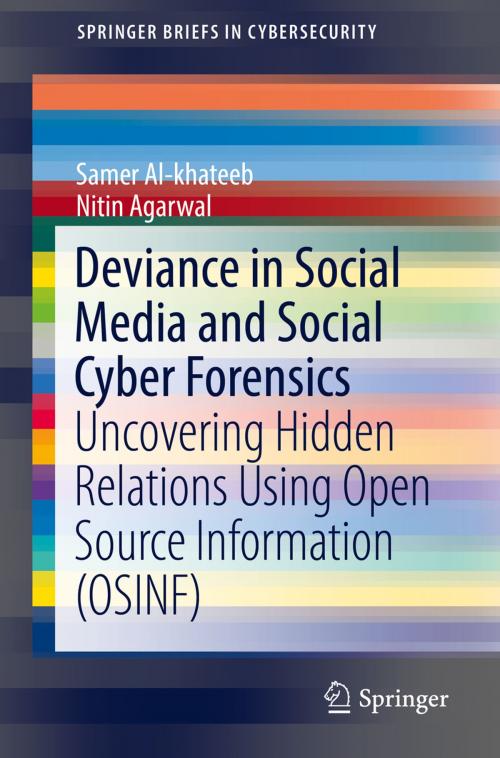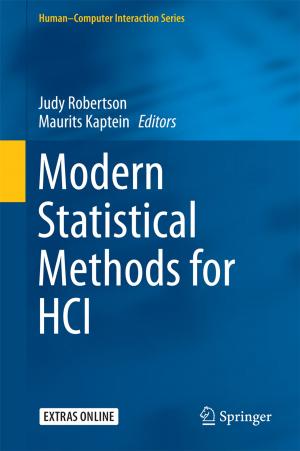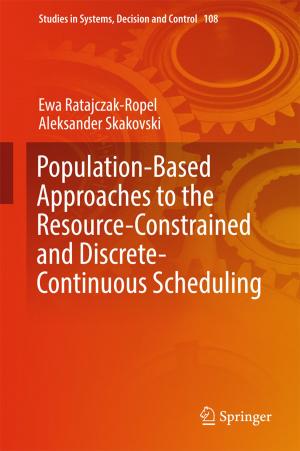Deviance in Social Media and Social Cyber Forensics
Uncovering Hidden Relations Using Open Source Information (OSINF)
Nonfiction, Computers, Networking & Communications, Computer Security, Operating Systems, Application Software| Author: | Samer Al-khateeb, Nitin Agarwal | ISBN: | 9783030136901 |
| Publisher: | Springer International Publishing | Publication: | May 13, 2019 |
| Imprint: | Springer | Language: | English |
| Author: | Samer Al-khateeb, Nitin Agarwal |
| ISBN: | 9783030136901 |
| Publisher: | Springer International Publishing |
| Publication: | May 13, 2019 |
| Imprint: | Springer |
| Language: | English |
This book describes the methodologies and tools used to conduct social cyber forensic analysis. By applying these methodologies and tools on various events observed in the case studies contained within, their effectiveness is highlighted. They blend computational social network analysis and cyber forensic concepts and tools in order to identify and study information competitors.
Through cyber forensic analysis, metadata associated with propaganda-riddled websites are extracted. This metadata assists in extracting social network information such as friends and followers along with communication network information such as networks depicting flows of information among the actors such as tweets, replies, retweets, mentions, and hyperlinks. Through computational social network analysis, the authors identify influential actors and powerful groups coordinating the disinformation campaign. A blended social cyber forensic approach allows them to study cross-media affiliations of the information competitors. For instance, narratives are framed on blogs and YouTube videos, and then Twitter and Reddit, for instance, will be used to disseminate the message. Social cyber forensic methodologies enable researchers to study the role of modern information and communication technologies (ICTs) in the evolution of information campaign and coordination.
In addition to the concepts and methodologies pertaining to social cyber forensics, this book also offers a collection of resources for readers including several datasets that were collected during case studies, up-to-date reference and literature surveys in the domain, and a suite of tools that students, researchers, and practitioners alike can utilize. Most importantly, the book demands a dialogue between information science researchers, public affairs officers, and policy makers to prepare our society to deal with the lawless “wild west” of modern social information systems triggering debates and studies on cyber diplomacy.
This book describes the methodologies and tools used to conduct social cyber forensic analysis. By applying these methodologies and tools on various events observed in the case studies contained within, their effectiveness is highlighted. They blend computational social network analysis and cyber forensic concepts and tools in order to identify and study information competitors.
Through cyber forensic analysis, metadata associated with propaganda-riddled websites are extracted. This metadata assists in extracting social network information such as friends and followers along with communication network information such as networks depicting flows of information among the actors such as tweets, replies, retweets, mentions, and hyperlinks. Through computational social network analysis, the authors identify influential actors and powerful groups coordinating the disinformation campaign. A blended social cyber forensic approach allows them to study cross-media affiliations of the information competitors. For instance, narratives are framed on blogs and YouTube videos, and then Twitter and Reddit, for instance, will be used to disseminate the message. Social cyber forensic methodologies enable researchers to study the role of modern information and communication technologies (ICTs) in the evolution of information campaign and coordination.
In addition to the concepts and methodologies pertaining to social cyber forensics, this book also offers a collection of resources for readers including several datasets that were collected during case studies, up-to-date reference and literature surveys in the domain, and a suite of tools that students, researchers, and practitioners alike can utilize. Most importantly, the book demands a dialogue between information science researchers, public affairs officers, and policy makers to prepare our society to deal with the lawless “wild west” of modern social information systems triggering debates and studies on cyber diplomacy.















